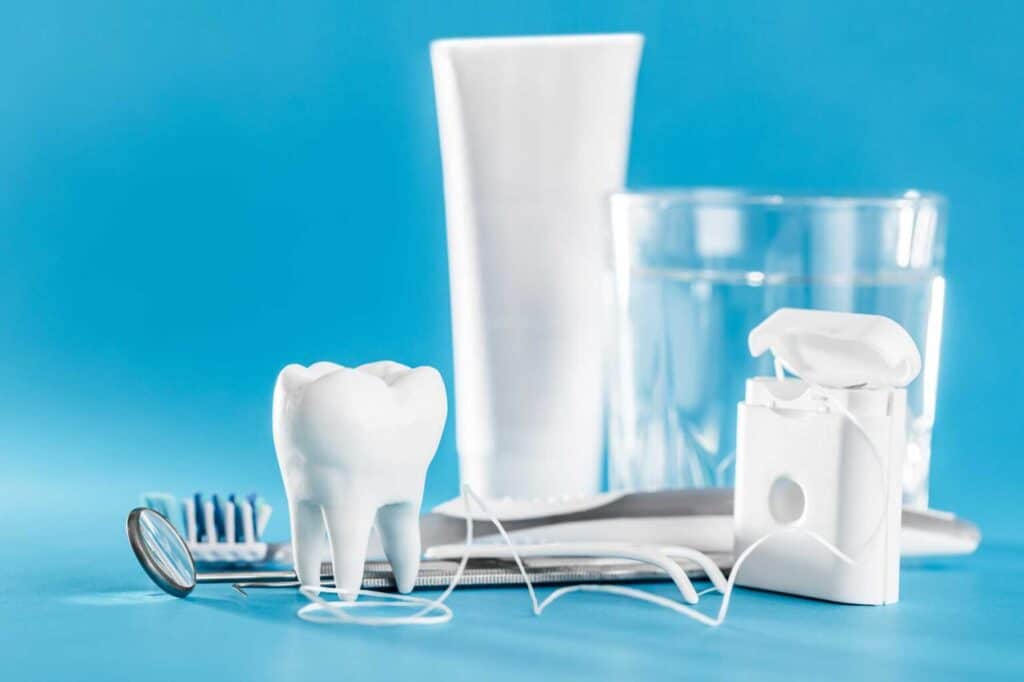In the realm of personal health, oral hygiene holds a paramount place. While regular dental check-ups are indispensable, effective at-home dental care is equally crucial for maintaining a healthy smile. Here, we delve into the essential do’s and don’ts of DIY dental care, helping you uphold optimal oral hygiene between dentist visits.
Do’s for At-Home Oral Hygiene
- Do Brush Twice a Day: It’s the cornerstone of oral hygiene. Use a soft-bristled toothbrush and fluoride toothpaste, brushing in gentle, circular motions for two minutes. This simple habit can significantly reduce the risk of cavities and gum disease.
- Do Floss Daily: Flossing reaches the tight spaces between teeth and under the gumline that your toothbrush can’t. It removes plaque and food particles, preventing tartar build-up and gum disease.
- Do Use Mouthwash: An antimicrobial mouthwash can reach areas missed by brushing and flossing. It reduces bacteria, freshens breath, and, depending on the formulation, can help strengthen enamel.
- Do Maintain a Balanced Diet: Your diet plays a critical role in oral health. Consume plenty of water, fruits, vegetables, and dairy products. These foods promote saliva production and supply essential minerals that protect tooth enamel.
- Do Replace Your Toothbrush Regularly: Swap out your toothbrush every 3-4 months or sooner if the bristles are frayed. A worn toothbrush won’t clean your teeth effectively.
Don’ts for At-Home Oral Hygiene
- Don’t Overbrush: While brushing is vital, overdoing it or using a hard-bristled toothbrush can wear down enamel and irritate your gums. Be thorough but gentle.
- Don’t Neglect Your Tongue: Plaque and bacteria can accumulate on your tongue, leading to bad breath and other oral health issues. Gently brush your tongue or use a tongue scraper to keep it clean.
- Don’t Use Teeth as Tools: Opening packages, cracking nuts, or chewing on hard objects (like pens or ice) can damage teeth, leading to chips or cracks. Use tools designed for the job, not your teeth.
- Don’t Ignore Pain or Changes: If you experience tooth pain, sensitivity, or notice changes in your mouth (like sores or patches), don’t wait for your next dental appointment. These could be signs of underlying issues that require immediate attention.
- Don’t Skip Dental Appointments: Even with impeccable at-home care, professional cleanings and check-ups are irreplaceable. Dentists can catch problems early and provide treatments that at-home care simply cannot.
Incorporating These Practices
Embracing the do’s and avoiding the don’ts of at-home oral hygiene sets a solid foundation for dental health. For instance, consider the journey of Alex, a patient of ours who transformed their oral health by integrating these practices. Alex always struggled with frequent cavities and gingivitis as he grew up in a household that did not prioritize oral health. He would blame his busy lifestyle for “forgetting” to brush and floss, often times skipping a session here and there while not thinking of the consequences. We worked with Alex to adopt a comprehensive at-home oral hygiene routine. This included proper brushing, flossing, and diet adjustments. We helped Alex realize how simple it was to incorporate best dental hygiene practices into his busy lifestyle! Over time, these changes, coupled with regular dental visits, drastically improved Alex’s oral health, showcasing the power of proactive and preventive care. We’re proud to announce Alex’s dental checkups in the past year have not yielded any new cavities! Way to go, Alex!
Conclusion
Your daily oral hygiene practices are your first line of defense against dental issues. By following these do’s and don’ts, you not only maintain your dental health but also contribute to your overall well-being. Remember, effective DIY dental care doesn’t replace professional dental visits but complements them, ensuring your smile remains bright, healthy, and strong.

